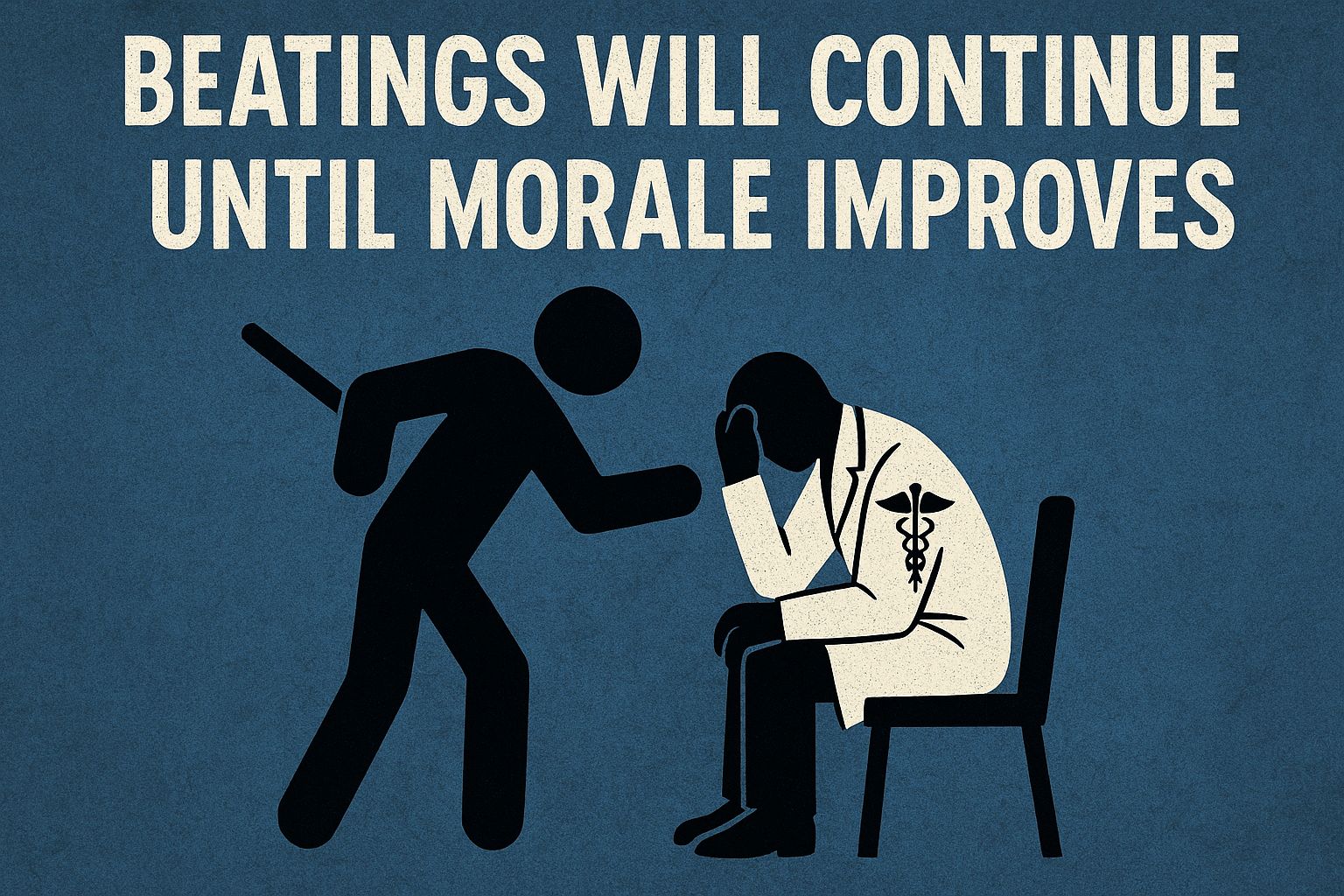Single Post

Today’s walk with Cody was quiet, one of those uneventful starts to a surprisingly sunny bank holiday weekend.
The stillness gave space for reflection, especially on a couple of meetings this week. They were framed as “frank discussions” about what professionals could do better. “No blame,” the facilitators insisted, but most of us knew better.
Mental health professionals, especially psychiatrists, are increasingly held responsible for failures that stem from underfunding, policy neglect, and structural dysfunction. We are expected to deliver more with less. When the system predictably and inevitably falters, mercifully rarely, we are the ones scrutinised.
Over 1.6 million people are waiting for mental health care. Yet the share of NHS funding for mental health has been cut. Beds are unavailable. Community support is threadbare. Housing is unstable. These aren’t clinical failures. They’re political ones.
Psychiatrists often face impossible choices: not between best practices, but between what is ideal and what is available. This leads to moral injury: guilt, shame, and burnout from the decisions that they are forced to make.
While policymakers may be well-intentioned, there is a growing tendency to deflect responsibility for outcomes solely onto frontline staff. We are praised in speeches and offered eye-catching initiatives like “wellbeing hubs,” but undermined in policy.
If government is serious about sustainable mental health care, it must stop scapegoating professionals, invest in infrastructure and introduce meaningful targets and accountability.
There is clear readiness among psychiatrists and mental health professionals to work constructively, alongside patients, carers, and communities, to build a system that truly delivers.
But heroism without support isn’t sustainable. Until policy aligns with reality, morale will keep falling. And the beatings, figurative though they may be, will continue.